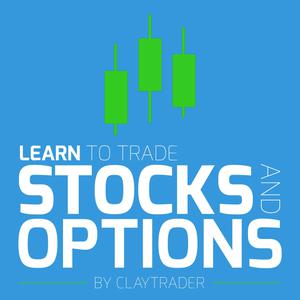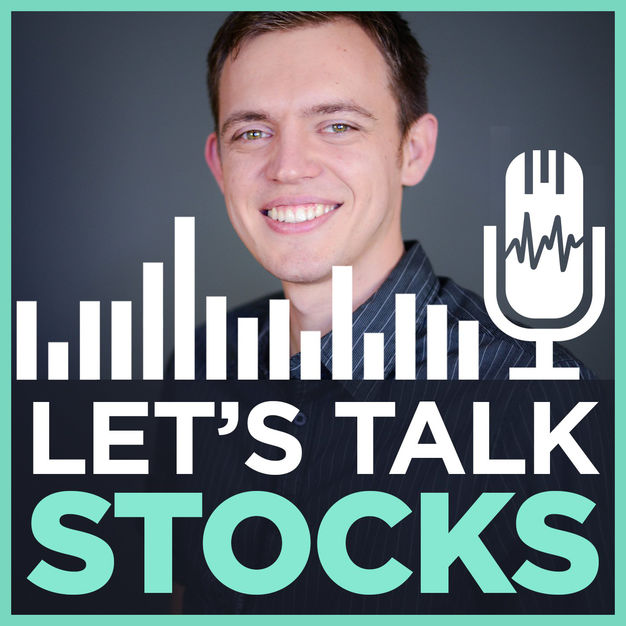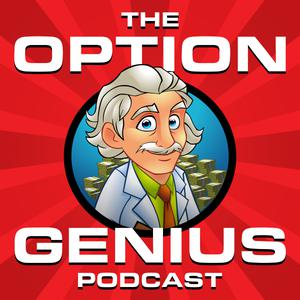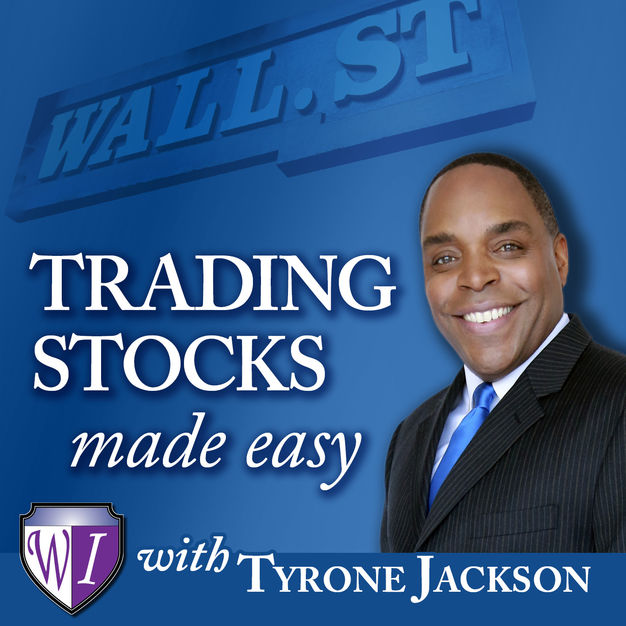
Learn To Trade Stocks and Options
ClayTrader
ClayTrader.com - Break down the market and trading with technical analysis.
- 26 minutes 11 secondsI YOLO’d!…1 Trade, Max Size 12 NQ Contracts.. (part 3 prop firm challenge)
In this video, I examine the mechanics of executing a maximum-size trade within a futures prop firm environment. I present the concept of YOLO trading, specifically leveraging 12 NQ contracts, to illustrate the trade-offs and constraints present in a regulated evaluation phase. I focus on the absence of a pattern day trading rule in the futures market and the near-constant market access it provides. I also detail the roles and requirements of prop firms, including the profit targets, position size limits, and the stipulated restrictions that ensure consistent and verified trading performance. By working through these conditions, I demonstrate how a trader can navigate the initial evaluation steps while adhering to the rules designed to foster proper risk management. My objective is to provide a structured perspective on futures trading and prop firm challenges, emphasizing the importance of patience, calculation, and adaptability.
16 December 2024, 4:00 pm - 30 minutes 43 secondsPart 2 of the YOLO Prop Firm Futures Trading Challenge!
In this video, I continue working through my futures trading prop firm YOLO challenge. I interact with the market in real time, address the complexities of building and managing a position, and explore the operational differences between futures and equities. My primary focus is on applying technical trading principles, including evaluating areas of resistance, potential pivot points, and examining moving averages as reference levels. Throughout the process, I adhere to a set of constraints provided by a member of my trading community. This approach emphasizes controlled but substantial position sizing within the futures market. While I do not rely on the pattern day trading rule, I recognize the importance of maintaining strict discipline and risk management, even when engaging in higher-risk “YOLO” trades. I present the price action methodically, specifying entry points, stop placements, and potential outcomes for each move. This video aims to offer a technical, educational perspective on futures trading that demonstrates both the practicality and the volatility inherent in this asset class.
13 December 2024, 4:00 pm - 28 minutes 46 secondsFutures Prop Firm YOLO Trading Challenge! (thanks Sam!)
In this video, I focus on establishing my approach to a futures trading challenge through a prop firm account. I explain the definition of a prop firm account and outline how working with one offers the opportunity to risk a small amount of personal capital for potentially significant upside. I emphasize the characteristics of futures trading, such as the absence of the pattern day trader rule and the near-round-the-clock operational hours, which can enable me to structure trades more flexibly. As I proceed with the trading session, I begin by using smaller contract sizes to balance the YOLO approach against the account parameters set forth by Sam. I discuss risk management decisions, the impact of trendlines, and evaluating key levels, as well as how I incorporate position sizing adjustments as the session unfolds. Through these trades, I aim to highlight the complexities, emotional challenges, and strategic considerations inherent in futures trading and prop firm-funded endeavors, all while operating within the constraints and guidelines specified for this YOLO trading challenge.
11 December 2024, 4:00 pm - 10 minutes 19 secondsFutures Trading vs. Options Trading: The Big Difference!
In this video, I examine the key differences between trading futures and options, with particular emphasis on how pricing mechanics influence decision-making. I consider the impact of the Greeks on options pricing and illustrate why they can create additional complexity. I show how, when trading futures, there is a direct relationship between the charted price level and the actual trade execution point. By providing a real futures trade example, I explain how, unlike with options, I can accurately anticipate entry and exit prices without the distortion caused by external factors. I address the underlying price influences in options trading and their effect on strategy formulation. I also highlight how futures are free from the pattern day trading rule, potentially offering flexibility for certain trading approaches.
9 December 2024, 4:00 pm - 15 minutes 45 secondsHow to Wisely Start Trading Futures (no PDT rule!)
- Step 1 - Get the Basics HERE
- Step 2 - Build a Strategy HERE
- Step 3 - Start Practicing HERE
- Step 4 - Begin Your Prop Firm Test HERE
I present a structured approach to beginning futures trading by focusing on risk management and personalizing strategies to fit my unique risk tolerance. I explain key concepts such as the pattern day trading rule and the benefits of choosing the futures market, including extended trading hours and accommodating smaller amounts of capital. I then discuss the importance of building an individualized trading system rather than relying on one-size-fits-all methodologies. After establishing this foundational knowledge, I clarify the concept of prop firm brokers and their impact on my trading potential, ensuring I understand the distinction between total purchasing power and the actual capital I risk losing. I emphasize the necessity of practicing with accurate parameters, using paper trading to mirror real conditions and force proper trading behaviors. By treating the trailing drawdown amount as my real account size during simulated trading, I create discipline that will transition seamlessly into live trading scenarios. Overall, I aim to provide a thorough, step-by-step framework that combines technical understanding, responsible risk management, and realistic practice routines.
6 December 2024, 4:00 pm - 8 minutes 38 secondsThis is an amazing promotion for day traders
In this video, I discuss an exceptional promotion available for day traders interested in futures trading through a prop firm. I am actively participating in this opportunity myself using Take Profit Trader. This promotion allows us to engage in futures trading with minimal personal financial risk—potentially even zero upfront cost.
Futures trading offers a straightforward entry into the markets without the complexities of options trading, such as understanding the Greeks (theta, delta, gamma). For those new to futures trading, I provide a free series of four classes to build a solid foundational understanding (link below).
The promotion from Take Profit Trader includes a 40% discount on their test phase accounts and waives the activation fee upon passing the test phase. Additionally, if we successfully pass the test phase, they will refund the initial test fee. This means we can start trading with none of our own capital at risk while retaining 80% of any profits earned, as the prop firm keeps 20% for providing the trading opportunity.
Participating requires demonstrating disciplined trading and effective risk management during the test phase. The prop firm enforces rules that encourage responsible trading practices. For more details on why I chose to trade through a prop firm, please refer to the linked video below.
This approach allows us to access market opportunities with significant upside potential while minimizing personal financial exposure. I highly recommend considering this promotion if you are interested in futures trading. The link to Take Profit Trader, which includes the promotional offer, is provided below. Please note that this is an affiliate link, and using it supports the channel at no additional cost to you.
Remember to approach futures trading responsibly and consider completing the free foundational classes before starting. If you have any questions, feel free to reach out.
4 December 2024, 4:00 pm - 9 minutes 15 secondsA Common Complaint Against Technical Trading Charts
As a trader, I often encounter the criticism that technical analysis is ineffective because charts only display past data and cannot predict the future. I acknowledge that no one can predict market movements with absolute certainty, and it is true that charts reflect historical information. However, I believe that analyzing past price action provides valuable insights that inform our trading decisions.
By studying historical patterns and behaviors, we can identify areas where the probabilities may be in our favor. For instance, if a stock consistently bounces off a particular support level, it is logical to consider that level as a potential entry point. While this does not guarantee future performance, it offers a rational basis for our strategies.
In this video, I address the common complaint that charts merely show what has already happened and therefore hold no value. I explain how past data can be instrumental in identifying likely scenarios and why utilizing historical information is a practical approach in trading. My aim is to equip fellow traders with an understanding of how to effectively use technical analysis to gain an edge in the markets.
2 December 2024, 4:00 pm - 12 minutes 46 secondsFutures Trading 101: Finding YOUR Comfort Level
In this video, I explore the critical aspect of futures trading: finding your personal comfort level. I address a common question from my community about whether traders prefer NQ or MNQ futures contracts. While it's natural to wonder what others are trading, it's essential to focus on what suits your own trading style and risk tolerance. To illustrate this, I walk through seven of my own trades, varying in product and position size. By observing the fluctuations in profit and loss during these trades, you can assess how different products and contract sizes might affect your trading experience. Remember, the key variables are the futures product and the number of contracts traded. Your emotional response to these fluctuations is a vital indicator of what is appropriate for you. Additionally, I provide information on futures trading basics and introduce the concept of prop firm trading, which allows you to minimize personal capital risk while accessing greater upside potential.
29 November 2024, 5:00 pm - 15 minutes 38 secondsFutures Trading: Doing Dumb Things (and learning…)
In this video, I engage in futures trading and analyze my actions, including several mistakes I made during the process. My objective is to illustrate that errors are a natural part of learning, even for experienced traders like myself. We explore the mechanics of futures trading, the use of prop firm accounts, and the advantages of trading micros for risk management. By walking through my trades on the Tradeovate platform, I aim to provide insights into trade execution, risk mitigation, and platform navigation. I also discuss the importance of understanding tick sizes, stop losses, and order management to improve trading efficiency. If you are considering futures trading or looking to refine your strategies, this video offers practical examples and learning opportunities.
27 November 2024, 4:00 pm - 9 minutes 8 secondsOHLC Bar Charts Explained (Technical Analysis 101)
In this video, I explain the fundamentals of O-H-L-C bar charts and how we can use them as a tool for swing trading, day trading, and investing. We explore how these charts apply to options, stocks, cryptocurrencies, and futures by focusing strictly on price action. I demonstrate how to interpret each component—the Open, High, Low, and Close—and how they represent market movements within specific time frames. By analyzing these elements, we can make informed decisions about our future trades and investments. We also observe the real-time formation of O-H-L-C bars using Bitcoin charts and discuss the use of Webull as a charting platform to enhance our trading strategies.
25 November 2024, 4:00 pm - 14 minutes 47 secondsProp Firm Futures Trading… Let’s Go!
I am transitioning into futures trading through the prop firm trading method. After years of trading options, specifically SPX and index options, recent market changes have made it increasingly difficult to execute trades effectively. Upon consulting with respected traders in my community who have also experienced these challenges, I have decided to explore futures trading with a prop firm. I have chosen Take Profit Trader due to their straightforward rules and emphasis on risk management. In this video, I explain my reasoning, the benefits of prop firm futures trading, and how risk management is enforced through their testing phase. I also offer a free class on futures trading for those interested in learning more.
22 November 2024, 4:00 pm - More Episodes? Get the App
 Charting Wealth's Daily Stock Trading Review
Charting Wealth's Daily Stock Trading Review
 Let's Talk Stocks with Sasha Evdakov - Improve Your Trading & Investing in the Stock Market
Let's Talk Stocks with Sasha Evdakov - Improve Your Trading & Investing in the Stock Market
 The Option Genius Podcast: Options Trading For Income and Growth
The Option Genius Podcast: Options Trading For Income and Growth
 Options Boot Camp
Options Boot Camp
 Trading Stocks Made Easy with Tyrone Jackson: Investing in Stocks | Investing Money
Trading Stocks Made Easy with Tyrone Jackson: Investing in Stocks | Investing Money
 The Stock Trading Reality Podcast
The Stock Trading Reality Podcast
Your feedback is valuable to us. Should you encounter any bugs, glitches, lack of functionality or other problems, please email us on [email protected] or join Moon.FM Telegram Group where you can talk directly to the dev team who are happy to answer any queries.